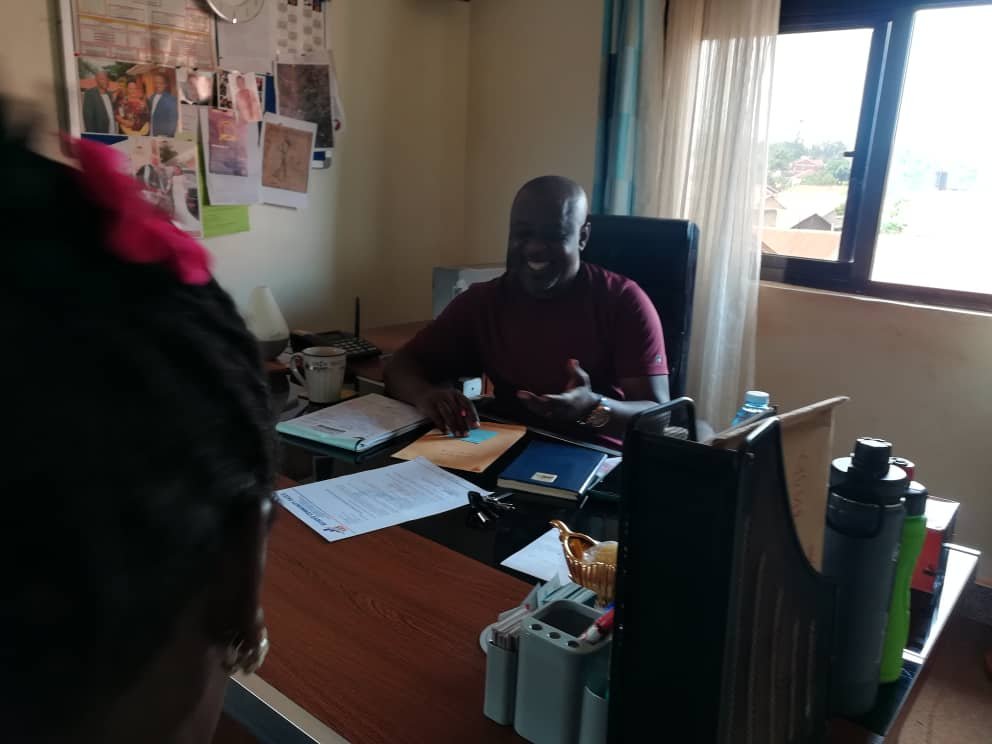
“I have been serving in this community for the last twenty years, and in the community I am a pastor, a community leader, and a director. Maybe to put it in today’s language, I am a social worker, because whatever I do I engage people.”
—Deo Mwanje
MUWENDO Foundation, Kosovo Community SACCO, and Word of Life Community Church
Linked projects for community welfare led by a local pastor
Meet the Caregiver
Deo Mwanji’s childhood story is full of struggle. His father suffered from depression and alcoholism, after the kind of Buganda—his leader, employer, and benefactor—was overthrown by the colonizing British. Although Deo’s father had once been well-off, he lost his land and wealth through drinking. Deo’s mother was a woman he met in a bar, who was left alone to care for their two children. By the time Deo was fourteen, he could no longer afford school, so he moved to Kampala to find his way, spending many years of his life living without food and housing.
In his account, he was rehabilitated by a Pentecostal Church, through a man he met in prison. The church became his life, and later his profession. After five years as an assistant pastor in that church, he started his own congregation, Word of Life Community Church, in a poor neighborhood called Lusaze. From this beginning, this church was involved in many community care projects, including a preschool called Treasured Kids, a savings cooperative, and eventually MUWENDO Foundation, an NGO with an office in Massachusetts.
A Multi-pronged Approach
It is difficult to characterize Deo’s work as just a “church charity,” “NGO,” “School,” “Development Organization,” or “SACCO (Savings Cooperative).” It is all of those things, brought together by Deo’s leadership and a network of others who care for each other, and the most needy residents of Lusaze. In our research, however, we found this often to be the case: behind many care organizations is a kind of extended family of interdependent relations, often with a sense of religious or spiritual belonging as well. Out of that “family” come many linked formal organizations with different functions.
Perhaps more than anyone else we interviewed, Deo Mwanji’s work shows how community care crosses and integrates different organizational sectors.
For more information and to support Deo’s work, visit their website.
